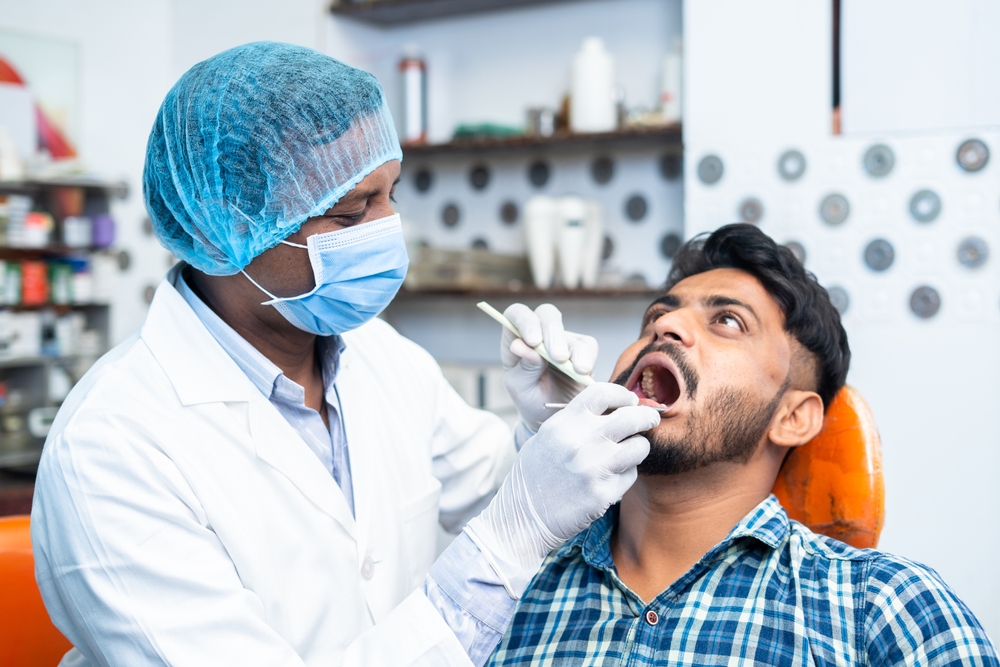
A crown is supposed to take away the pain. So why does your treated tooth still hurt?
Your dentist will fit you with a dental crown or cap to save a severely decayed or broken tooth. This popular restorative procedure preserves most of your natural tooth structure while cleaning out the decay that caused so much pain. So why might the crowned tooth feel so sensitive following the procedure?
Minor sensitivity following a crown is normal and should last only a day or two. Your best option is to take some at-home remedies like the ones detailed below.
Six at-home remedies for crown sensitivity
Crowns are one of the most effective ways to treat tooth decay or breakage. But they’re also used in restorative and cosmetic dentistry to top off a dental implant or cover a discolored tooth. Most dentists can cap your tooth, with 96 percent of practices in a recent survey stating that they offer dental crowns.
Following the procedure, the treated tooth may react to hot and cold beverages and foods for a brief time. The gums surrounding the crown may feel slightly sore, too. Again, any discomfort should be temporary. To help you manage the pain, you can try these at-home remedies:
Take over-the-counter pain relievers. Medications available in the drugstore, such as acetaminophen (Tylenol) or ibuprofen (an anti-inflammatory sold as Advil and Motrin), can alleviate the pain. Check with your doctor first to see if any will interfere with your current medications.
Rinse with warm salt water. Mix warm water with two to three tablespoons of salt to soothe tender gums and fight infection.
Apply a cold compress. Apply a cold compress to your cheek to relieve minor facial swelling and pain after a crown. Never put the cold compress directly on the tooth, which will trigger more pain.
Relax. Relaxation techniques such as deep breathing and calming music can briefly take your mind off the toothache.
Exercise. Exercising releases pain-fighting endorphins, so working out can actually help you feel better.
Change your diet. Limit hot and cold foods and beverages that may aggravate the affected tooth.
Any minor discomfort should fade in a few days. However, if the pain lasts longer than that, contact your dentist for an evaluation. The decay may have reached under the crown and caused a cavity. The tooth root may have been fractured, making it painful to chew. Likewise, an abscess may develop if the root dies and a bacterial infection grows between the tooth and gums.
Sometimes, the cement used to secure the crown to the tooth doesn’t fully solidify, which can cause the crown to move. In all these cases, your dentist can repair the decay or damage and fit you with a new crown if needed.
Taking care of your new crown
Your crown is made of strong material, typically metal, porcelain, or ceramic, and lasts up to 15 years if tended to properly.
Follow these tips, especially in the days following placement, for a long-lasting crown:
Keep up with your dental care routine. Bacteria and plaque can still accumulate on the crown and possibly spread to the inner root. Brush with fluoride toothpaste and floss to keep your crown and all teeth healthy. For extra bacteria-fighting power, rinse with an antibacterial mouthwash.
Avoid hard, sticky foods. As durable as crowns are, they are not indestructible. Hard foods such as ice and nuts can fracture the crown. Caramels can stick to the crown and dislodge it. Avoid those sticky foods or chew on the opposite side of the crown to keep it intact.
Wear a nightguard. Nighttime teeth grinding, or bruxism, can wear down and break the crown. A night guard made for you by your dentist will protect the crown and your other teeth from damage.
See your dentist regularly. Twice-yearly dental checkups can spot any problems with your crown and start repairs. Such visits also prevent the need for a crown by treating any decay before it reaches the point where you require a crown.
Meet your crown specialists in San Diego County
Dr. Jeff Gray and Dr. Greg Hurtado at Espire Dental in La Mesa have been providing the best quality crowns and other restorative procedures to the San Diego community for over 30 years. Schedule your consultation online!
Proudly serving San Diego County and surrounding area.
San Diego | Chula Vista | Oceanside | Escondido | Carlsbad | El Cajon | Vista | San Marcos | Encinitas | National City | La Mesa | Santee | Poway | Imperial Beach | Lemon Grove | Coronado | Del Mar | Solana Beach
